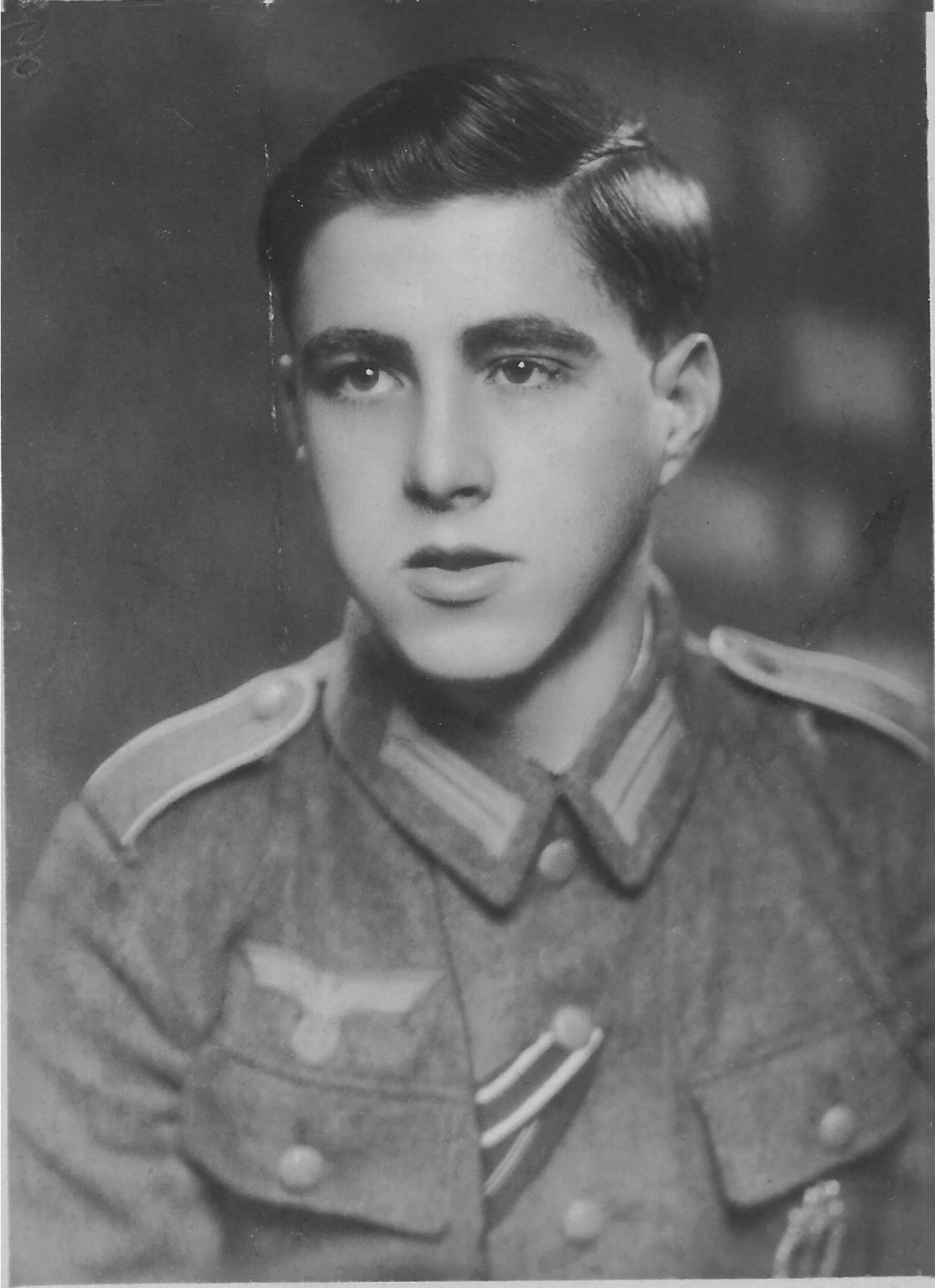Nikolaus Brüll was born in 1922 in Eupen, a formerly German city annexed by Belgium after the First World War. Nikolaus’ family had become Belgian citizens through this annexation, but his parents always felt more German than Belgian.
After the invasion of Belgium by Nazi-Germany in May 1940, Eupen was integrated into the German Reich. Nikolaus voluntarily joined the Hitlerjugend, and in September 1941, his family obtained German nationality. With German nationality came German conscription, and Nikolaus went to serve in the Wehrmacht. After six months of military training, 19-year old Nikolaus left for the Eastern Front in March 1942.
Nikolaus’ military career ended abruptly in August 1943 after he suffered a severe wound to his right leg. The wound was so bad that his leg had to be amputated and he spent the remainder of the war in military hospitals. In May 1945 he was arrested by American troops.
After three and a half years of absence, Nikolaus was able to return home in October 1945. With the liberation, Eupen became Belgian territory again and all “German” citizens of Eupen – including Nikolaus and his family – became the subject of investigation. Soon after his return, Nikolaus found himself imprisoned in the Verviers internment camp with several charges against him: taking up arms against Belgium and membership of the Hitlerjugend. He proved his military service was obligatory, was released, and eventually regained his civil and political rights.
Despite this, Nikolaus would never be able to leave the war behind him, as his missing right leg and walking stick were a daily reminder of his experiences, impossible to hide from those around him.


